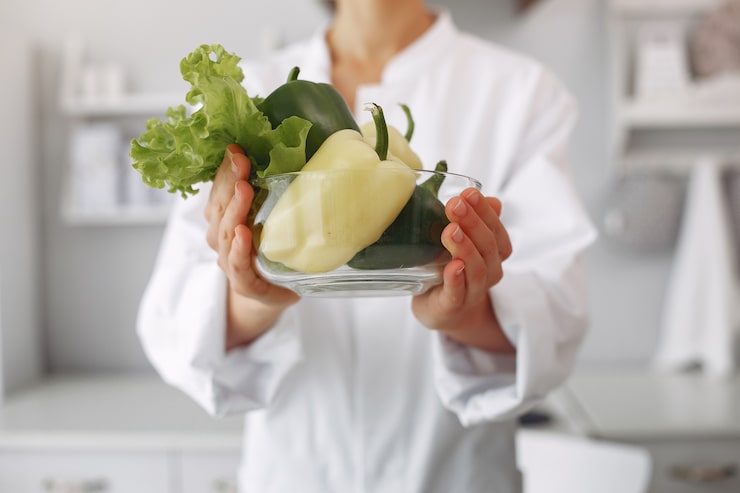If you’re noticing more hair than usual on your brush or in the shower, your diet could be a big factor. Lacking key nutrients like protein, iron, and healthy fats can cause hair to thin and even fall out.
Hair needs a steady supply of nutrients to grow and stay strong. It’s made mostly of a protein called keratin and is one of the fastest-growing tissues in the body, so it has high nutrient needs. When you eat balanced meals with enough protein, iron, vitamins, and minerals, you give your hair the fuel it needs to stay healthy. When your diet is low in these nutrients, hair growth can slow and shedding can increase.

Here are the main nutrients that matter:
– Protein: Hair is built from protein. Not getting enough can make hair weak and brittle. Good sources include eggs, fish, lean meats, beans, and tofu.
– Iron: Iron helps carry oxygen to hair follicles. Low iron is linked to more hair shedding, especially in women. Find iron in red meat, spinach, lentils, and quinoa.
– Zinc: Zinc supports tissue repair and keeps oil glands around follicles working. It’s in nuts, seeds, whole grains, and dairy.
– Vitamins A, C, D, E:
– A (carrots, sweet potatoes) helps produce sebum to keep the scalp moist.
– C (citrus, berries) boosts collagen, which supports hair structure.
– D (fatty fish, eggs) helps form new hair follicles.
– E (almonds, sunflower seeds) protects hair from damage.
– B vitamins, including biotin (B7): These help carry oxygen and nutrients to the scalp. You can get them from whole grains, leafy greens, eggs, nuts, and avocados. If you’re not deficient, extra B vitamin supplements usually won’t help and can sometimes cause harm.
– Omega-3 fats: These keep hair shiny and nourished. Try salmon, walnuts, chia, and flaxseeds.
– Other helpful minerals: Magnesium (nuts, leafy greens), selenium (Brazil nuts, seafood), and copper (shellfish, seeds) all support hair health.
What happens when you don’t get enough: follicles can weaken, hair can break more easily, thin out, or fall out. Crash diets, skipped meals, or very low calories put the body under stress, so it prioritizes vital organs over hair. That’s why restrictive eating can cause more shedding. Also keep in mind that diet-related hair changes usually take a few months to show up, so recent diet changes could be the reason you’re seeing more loss now.
Signs your diet might be involved include more hair on your brush or pillow, dull or brittle strands, slower regrowth, a receding hairline, or a dry, flaky, or itchy scalp. The good news is that in many cases, improving your diet can help hair recover, though it may take several months to notice real change.
Practical tips to support hair with food:
– Add protein at every meal: eggs for breakfast, grilled chicken or tofu in salads, Greek yogurt, beans, and lentils.
– Boost iron: try spinach and lentil dishes, or include lean red meat a couple times a week. Quinoa is a good plant option.
– Include healthy fats: avocado, chia or flaxseeds, walnuts, and fatty fish like salmon.
– Eat a variety of colorful fruits and vegetables for vitamins and antioxidants. Berries, for example, help protect follicles from damage.
– Mediterranean-style foods — tomatoes, leafy greens, olive oil — are good for hair health.
– Some functional foods (like rice bran extract, red ginseng oil, and annurca apple polyphenols) show early promise for hair health, but the evidence is still limited.
– Stay hydrated — drinking enough water helps keep your scalp and hair hydrated.
Remember other causes: stress, hormones, genetics, and autoimmune conditions like alopecia areata can also cause hair loss. Conditions such as androgenetic alopecia (pattern hair loss) and telogen effluvium (sudden shedding) may be triggered by factors beyond diet. If hair loss continues, is sudden, or shows patchy bald spots, see a professional. A clinic like Treatment Rooms London or a qualified specialist can help find the cause and recommend treatment options.
Healthy hair starts with a healthy diet. By making sure you get enough protein, iron, healthy fats, and plenty of fruits and vegetables, you give your hair a better chance to grow strong and look its best. Small, consistent changes to your meals can make a big difference over time.